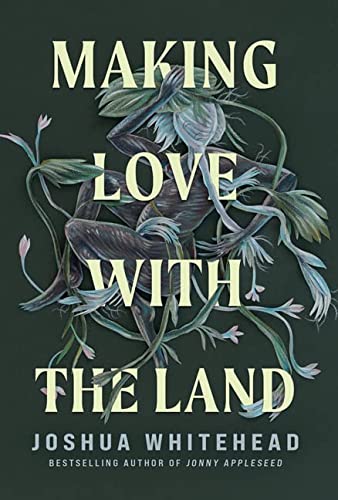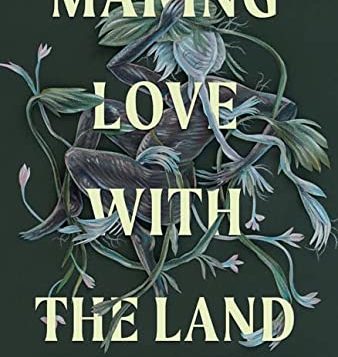 MAKING LOVE WITH THE LAND: Essays
MAKING LOVE WITH THE LAND: Essays
by Joshua Whitehead
University of Minnesota Press. 232 pages, $24.95
JOSHUA WHITEHEAD has been steadily gaining fame in the Canadian prairie provinces that are his home turf. In 2017, his innovative poetry collection full-metal indigiqueer appeared, and it was followed by an award-winning novel, Jonny Appleseed (2018). More recently, he completed a doctorate in Indigenous Literatures and Cultures in the University of Calgary’s departments of English and International Indigenous Studies, where he is an assistant professor. He is a Cree-speaking member of Peguis First Nation in Treaty 1 territory in the province of Manitoba, but he lives and works in Alberta. He identifies as “Two-Spirit,” which is distinctly different from being a man who dates men. Whitehead has defied the odds by finding a voice and an audience in a social system in which many young Indigenous people—whether or not they’re “queer” in any sense—never find a place to survive.
At first glance, Making Love with the Land looks like a departure from the author’s poetry and fiction, but anyone who has read his earlier work will recognize Whitehead’s characteristic honesty, humor, and deeply traditional worldview in which humans, animals, and plants are interconnected and all equally important.
He challenges Eurocentric, patriarchal conceptions of genre and of Indigenous writing for their lack of sophistication. He identifies himself as “an otacimow, a storyteller, something that may sound simple in English but in Nehiyawewin denotes in its root, otaci, that we are not only storiers but legend-speakers.” “Storier” is the word he applies to himself as a writer and a teacher who never forgets the stories of his upbringing, or the roots of “story” in the sound of a human voice.
Several of these essays have a narrative structure in which the author’s life story is intertwined with wordplay and the history of words in English and Cree, which has its own visual symbols. The “land” of the title is mostly the vast sweep of the prairies, observed on road trips from east to west (childhood home to western university), and back again for visits. In “Ekphrasis and Emphasis,” Whitehead explains the influence of visual art on his writing: “One of the first painters I ever sought to respond to was William Kurelek, a Ukrainian-Canadian artist and writer who often painted the prairies as embodying rather horrific idyllic sensualities.” His treatment of past relationships is sensitive and nonjudgmental. The essay titled “Me, the Joshua Tree” is addressed to “you,” a former lover. The author describes the sights and sounds of a poignant walk by a river with his lover when they both know that “the death of our relationship has begun.” Despair, depression, and irreparable conflict are balanced with hope and memories of ecstatic connection.
This collection of essays is an illuminating addition to Joshua Whitehead’s existing work, and it is probably best read in conjunction with his poetry and fiction.
Jean Roberta is a widely published writer based in Regina, Sask.






